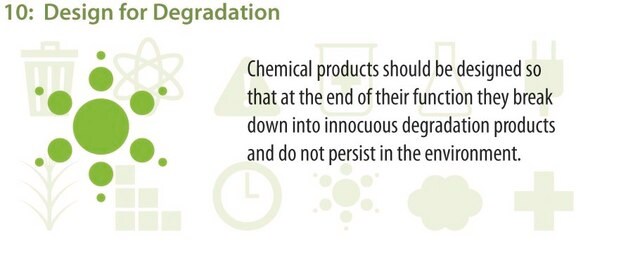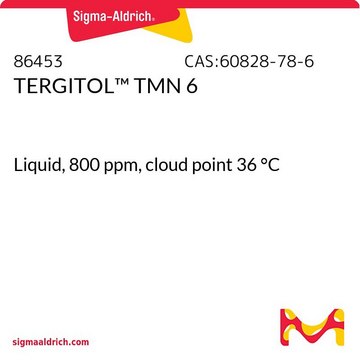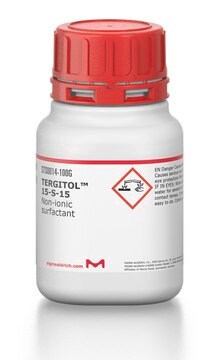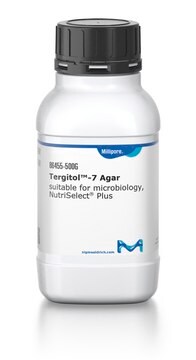Recommended Products
description
non-ionic
type
Type NP-7
mol wt
528 g/mol
CMC
39 ppm
transition temp
cloud point 20 °C
HLB
12
SMILES string
CCCCCCCCCC1=CC=C(C=C1)OCCO
InChI
1S/C17H28O2/c1-2-3-4-5-6-7-8-9-16-10-12-17(13-11-16)19-15-14-18/h10-13,18H,2-9,14-15H2,1H3
InChI key
KUXGUCNZFCVULO-UHFFFAOYSA-N
Looking for similar products? Visit Product Comparison Guide
General description
Tergitol is a non-ionic surfactant.
Application
Tergitol has been used in a study to develop a method for the determination of phenolic compounds in environmental water samples. It has also been used in a study to investigate the structural characterization and antimicrobial properties of silver nanoparticles.
Other Notes
Polyglycol ether (nonionic) surfactants.
Legal Information
TERGITOL is a trademark of The Dow Chemical Company ("Dow") or an affiliated company of Dow
Signal Word
Danger
Hazard Statements
Precautionary Statements
Hazard Classifications
Acute Tox. 4 Inhalation - Acute Tox. 4 Oral - Aquatic Chronic 2 - Eye Dam. 1
Storage Class Code
10 - Combustible liquids
WGK
WGK 3
Flash Point(F)
230.5 °F - Pensky-Martens closed cup
Flash Point(C)
110.3 °C - Pensky-Martens closed cup
Personal Protective Equipment
dust mask type N95 (US), Eyeshields, Gloves
Choose from one of the most recent versions:
Already Own This Product?
Find documentation for the products that you have recently purchased in the Document Library.
Customers Also Viewed
Huihui Ma et al.
Journal of separation science, 35(18), 2484-2490 (2012-08-30)
A method based on ultrasound-assisted cloud point extraction (CPE) was developed for the determination of phenolic compounds in water samples by high-performance liquid chromatography coupled with diode array detection (DAD) (HPLC-DAD). A nonionic surfactant, Tergitol 15-S-7, was chosen as the
Dayna M Brichta-Harhay et al.
Applied and environmental microbiology, 74(20), 6289-6297 (2008-08-30)
The hide and carcass hygiene of cull cattle at slaughter in four geographically distant regions of the United States was examined from July 2005 to April 2006 by measuring the aerobic plate counts (APC) and the prevalences and loads of
Irshad A Wani et al.
Colloids and surfaces. B, Biointerfaces, 101, 243-250 (2012-09-27)
Silver nanoparticles have been synthesized in the inverse microemulsions formed using three different surfactants viz., cetyl-trimethyl ammonium bromide (CTAB), Tergitol and Triton X-100. We have done a systematic study of the effect of the surfactants on the particle size and
Our team of scientists has experience in all areas of research including Life Science, Material Science, Chemical Synthesis, Chromatography, Analytical and many others.
Contact Technical Service








